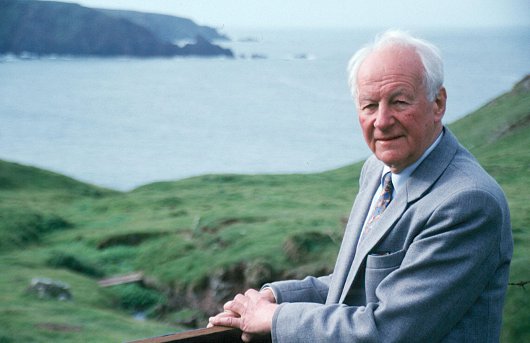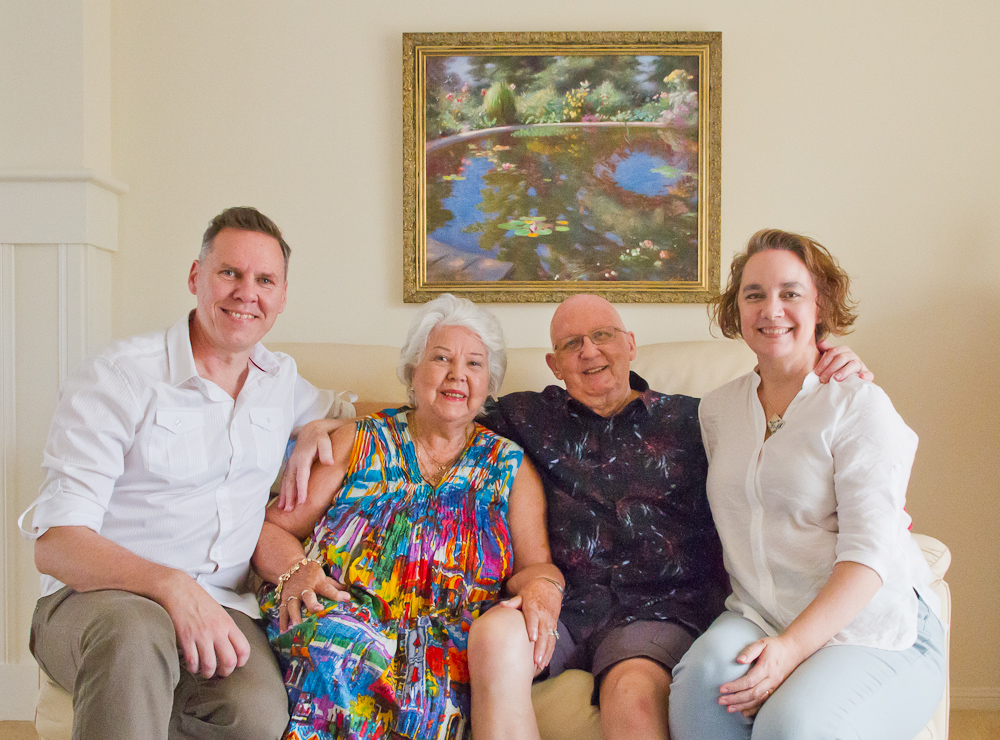6 Lessons from the Life of John Stott
Next to Billy Graham, perhaps no one has defined modern evangelical Christianity like John Stott. On Wednesday afternoon, July 27 2011, Stott finished his race – dying in the presence of friends, with Scripture being read to him and Handel’s Messiah playing in the background. Stott lived a remarkable life, left a remarkable legacy and set a tremendous example of integrity and faithfulness to millions. Here are 6 lessons I’ll take away from this humble man of God:
Picture: John Yates/Langham Partnership
1. Conviction
John Stott was a man primarily sold out to two things: 1) Jesus and 2) the Christian Scriptures.
Born into a privileged home, Stott’s cardiologist father hoped his son would enter the diplomatic service. Stott’s double first in modern languages at Cambridge proved him an ample intellect, worthy of many worthy ventures. But at the age of 17 his future plans changed when a friend invited him to a Christian Union meeting where a visiting speaker, E J H Nash, explained the Christian gospel. Stott surrendered his life to Christ’s ownership and a passion for the Scriptures began. Service in groups like Scripture Union followed, then ordination, his significant ministry at All Souls London, and an international ministry of writing and speaking.
‘He was not known as an original thinker,’ writes Tim Stafford in a Christianity Today piece, ‘nor did he seek to be. He always turned to the Bible for understanding, and his unforgettable gift was to penetrate and explain the Scriptures.’ As Mark Greene of the London Institute for Contemporary Christianity has said, ‘When John spoke, there was never any doubt whose messenger he was.’ John Stott was a single-minded man. His life shows what someone owned by Jesus and inspired by the Scriptures can achieve.
2. Focus
John Stott said ‘No’ to many worthy things in order to say ‘Yes’ to the most strategic things. His made these decisions by prayer. This was true of his life in general and his itinerary in particular.
Stott knew what his main calling in life was: to communicate to ‘students and pastors’. He made the university a key focus of his work, engaging sceptical, believing and seeking students in universities around the world with his careful exposition of the Scriptures and sharp intellect. He mentored scores of pastors around the globe, launching Langham Partnership with its vision of supporting and training Christian scholars and ministers in the Developing World.
At the day-to-day level, Stott sought to discern what God wanted him to do, not to do, and then set about doing the former. Sometimes this looked to all intents and purposes as obsession – one African pastor remembers staying at Stott’s house for a month but seeing him only once – but Stott focussed on his duties and avoided attractive offers (including becoming a bishop) which could’ve sidetracked him.
3. Holistic Gospel
Stott was one of the best modern proponents of a Christianity that combined both evangelism and social action – a Gospel that served both soul and body. While ‘liberal’ branches of the church have focused on justice projects and ‘conservative’ branches on personal conversion, John Stott held both together – and inspired thousands to do likewise.
‘Even before my conversion,’ Stott once said, ‘I believe that God gave me a social conscience. When I was only 14 years old, I started a society at school whose major purpose was to give baths to tramps.’ The baths for the homeless never eventuated but the heart to do so was revealed and was only strengthened as he read the Bible. ‘As I read and studied and meditated [on the Scriptures], my vision of God grew and I came to see the obvious things: that God is not just interested in religion but in the whole of life—in justice as well as justification.’
One lasting legacy of this concern was the Lausanne Covenant– described by some as an ‘evangelical Apostle’s Creed’ – of which Stott was the prime architect. It remains a benchmark of holistic Gospel thinking 37 years after it was first written.
4. Dialogue
As his leadership in the Lausanne movement showed, John Stott was a tireless worker for unity amongst the evangelical community. ‘I don’t mind plurality as long as it goes hand-in-hand with unity,’ he once said.
But Stott also engaged groups broader than his own. A conservative evangelical through-and-through, Stott’s life was marked by dialogue: with liberals, Catholics, his critics and others evangelicals might have once avoided. He said we could listen to and learn from people of other religions and no religion because Jesus – described as the logos or wisdom of God in John 1:9 – gives light and reason to all. The Bible and its revelation of Jesus as God-incarnate remained his final reference point for truth, but he would listento others before providing a biblically-based response.
This willingness to listen to others was also inherent in his famous advice to pastors to engage in ‘Dual Listening’ – listening to Scripture and to the world. To have a Bible in one hand a newspaper (or a blog post or a podcast today) in the other. It’s advice I’ve tried to abide by.
5. Fulfilled Singleness
In contrast to our sexually-obsessed culture, and in contrast to a church culture that sometimes views singleness as something to be pitied, Stott’s life was prophetic. He remained single and celibate for the entirety of his life.
This decision to forgo the comforts and joys of marriage was a direct outgrowth of Lessons 1 and 2. Stott was so surrendered to the purposes of One, and so focused on the tasks that this Lord had called him to, that he opted for singleness to give himself more fully to God’s work. He saw this as a personal direction from the Lord, not a pattern for all.
Would Stott have had the impact that he’s had being married? No one can tell for sure but one doubts it. He wrote his books secluded for weeks on end, travelled the world on extended preaching trips, dedicated himself to the demanding pastoral duties of one of London’s most significant churches, founded numerous organisations, mentored countless people, was a chaplain to the Queen… while enjoying bird watching, photography and hundreds of friendships forged across the globe.
I know Stott has been an inspiration to many who would love to have a partner but don’t on how to live a fulfilled and purposeful single life.
6. Humility
John Stott had a worldwide profile, yet he wasn’t up for self-promotion. His 50 books earned him considerable royalties, yet he lived simply, ploughing those finances into the Langham Partnership and other ventures serving others. His influence was profound, but made up of so many quiet acts of encouragement. Many attest to Stott’s humility.
This brings us back to the beginning, for humility is the beginning of the Christian life – as it was for Stott. He describes his conversion like this:
As a typical adolescent, I was aware of two things about myself, though doubtless I could not have articulated them in these terms then. First, if there was a God, I was estranged from him. I tried to find him, but he seemed to be enveloped in a fog I could not penetrate. Secondly, I was defeated. I knew the kind of person I was, and also the kind of person I longed to be. Between the ideal and the reality there was a great gulf fixed. I had high ideals but a weak will… What brought me to Christ was this sense of defeat and of estrangement, and the astonishing news that the historic Christ offered to meet the very needs of which I was conscious.
So, 6 lessons from the life of John Stott – his conviction, focus, holistic Gospel, willingness to dialogue, fulfilled singleness and humility. Of course, so many more lessons could be shared. Over to you in the comments section below.
The world feels the loss of a great man of God, while heaven celebrates his arrival.






Pingback: 6 Lessons from the Life of John Stott « Mixed Bag of Musings
Erik
“Stott lived a remarkable life, left a remarkable legacy and set a tremendous example of integrity and faithfulness to millions.”
Oh, how true. His life and writings are such a tremendous example for us Christians to look at. He is/was such a treasure to the body of Christ.
Sheridan Voysey
The more I reflect on Stott’s life the more I agree. Thanks Erik.